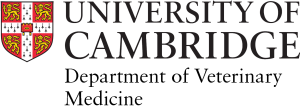
Histiocytic sarcoma is a cancer that kills around 30% of Flat Coated Retrievers (FCRs) with onset often in relatively young dogs. Existing treatments may cause remissions but are rarely curative. There is incomplete knowledge of the genetic factors within the breed that allow this cancer to be common, and virtually no knowledge of the specific metabolic pathways in these tumours that could enable targeted treatments.
Researchers in the Kennel Club Genetics Centre and elsewhere in the Department of Veterinary Medicine at the University of Cambridge, are conducting genetic and proteomic studies that aim to identify variants in the DNA and in the metabolic paths that are associated with this cancer.

Can you help?
To decipher the genetic factors underlying this disease, we need large numbers of FCR samples. If you are an FCR owner, you may be able to help us, if:
– your dog has been diagnosed with cancer, or
– your dog has not suffered from any type of cancer AND is at least 10 years old
If your dog meets either of these criteria, please contact: ???@vet.cam.ac.uk
By contributing a cheek swab DNA sample from your dog, you will be supporting a project that has the potential to help prevent this disorder from occurring in other FCRs, and possibly other breeds too that suffer from similar conditions.

One of our main research goals is to develop a DNA test that could inform us whether a dog has DNA variants that increase its risk of developing histiocytic sarcoma, or that could help inform their treatment.
What would taking part involve?
For both affected and unaffected dogs we will ask you to collect a cheek swab DNA sample from your dog. This involves rubbing some small brush-like swabs on the inside of your dog’s cheek. These take a very thin layer of cells from which DNA can later be extracted.
For potential cancer cases we would also ask you to complete an online questionnaire about your dog’s condition. We may also ask for your consent to contact your vet to see whether they have any remaining samples of the cancer.
Thanks to 123090 and karisjo for top and bottom FCR photographs, respectively, both from Pixabay
